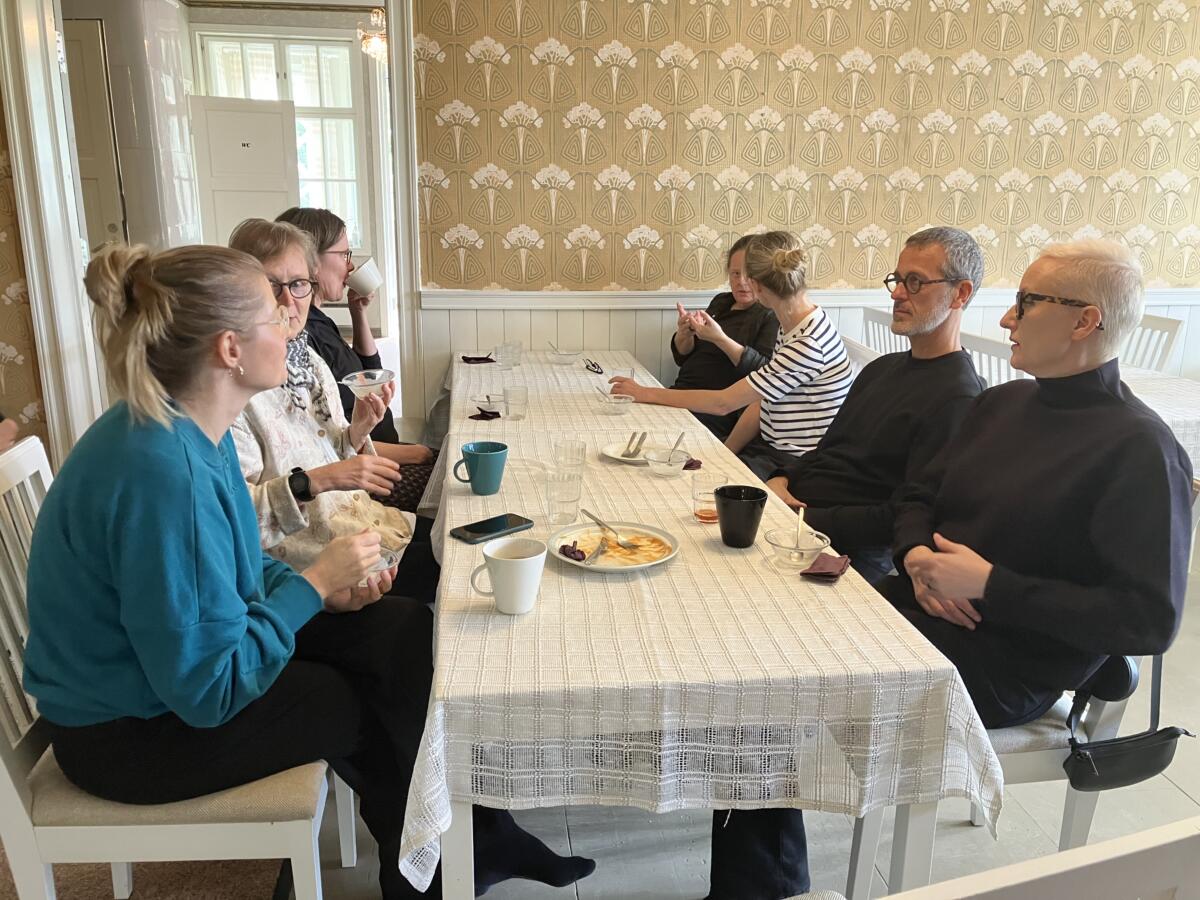University of the Arts Helsinki establishes new Academy-crossing group for societally oriented collaboration
The Critical Academy, breaking down boundaries between the three academies of the University of the Arts and civil society, brings together experts and practitioners in ecology, critical art education, intersectional and decolonizing practices, as well as political activism.

The Critical Academy convened for the first time in April 2023 at the Tiina and Antti Herlin Foundation’s House of Science and Hope on Puistokatu 4. The meeting, focused on the “Critical Decade” and hope, was attended by over 20 experts from Uniarts Helsinki and researchers from other universities via the hosting organization, Science Attic. In September, the Critical Academy gathered at the University of the Arts Helsinki’s Kallio-Kuninkala, with facilitation by Jaana Kauppinen, the executive director of Pro-tukipiste which promotes the well-being and rights of people selling sexual services.
According to Anita Seppä, the initiator and a professor at the University of the Arts Helsinki, the format of the group will be carefully considered during the academic year 2023–24. It is still open whether the group will become, for example, a think tank, a research network of the University of the Arts Helsinki, or something else. The goals, membership criteria, and organizational model of the group are also gradually being defined among participants from the different academies of Uniarts Helsinki including Sibelius Academy, Theatre Academy, Academy of Fine Arts, Research Institute and external contributors.
Seppä explains that the core objective is to strengthen the impact of interdisciplinary arts, pedagogy, and research and to create connections between various societal environments, civil society, and academies.
“In Uniarts Helsinki, we currently have a strongly academy-oriented operational environment, which means that experts seeking societal impact and change do not easily find each other,” says Seppä.
Bringing together dispersed research resources and experts enhances the effectiveness of the activities. The group already includes professors, lecturers, educators, researchers, and doctoral students from all the Uniarts Helsinki academies.
Phenomena such as extensive species loss, ecological disasters, and climate-induced displacement create unprecedented pressure for artists and researchers in the field to innovate.
A key goal of the Critical Academy is to promote rapid innovation by bringing together the core expertise of researchers with that of other societal actors.
“During 2023, we have established good collaboration with, among others, Suoni ry, an independent association for musical activism, and the Tiina and Antti Herlin Foundation’s House of Science and Hope. Cooperation has been initiated in a spirit of good collaboration, also with the BIOS research group,” says Seppä.
In addition to new interdisciplinary research collaboration models, the Critical Academy, according to Seppä, acts as a bridge to professionals who do not actively conduct research but whose teaching or artistic activities rely on societal-oriented research—or those who would like to do so.
“The Critical Academy is a non-hierarchical community that cherishes intellectual anarchy at its core. Its aim is to invite a heterogeneous group of cultural, arts, and science practitioners, not all of whom are in permanent employment with universities, foundations, or other established institutions.”
Although the potential for art and art research to change the world is inevitably limited, according to Seppä, each expert and practitioner in the field bears a weighty responsibility in the present era:
“Art is humanity’s most advanced conceptual system. It can process our collective subconscious and dreams—and is thus uniquely important for political and societal change.”
The next meeting of the Critical Academy, “Sauna Dialogues,” facilitated by Anna Talasniemi, former director of the Kone Foundation and a cultural and arts specialist, will take place on November 9.